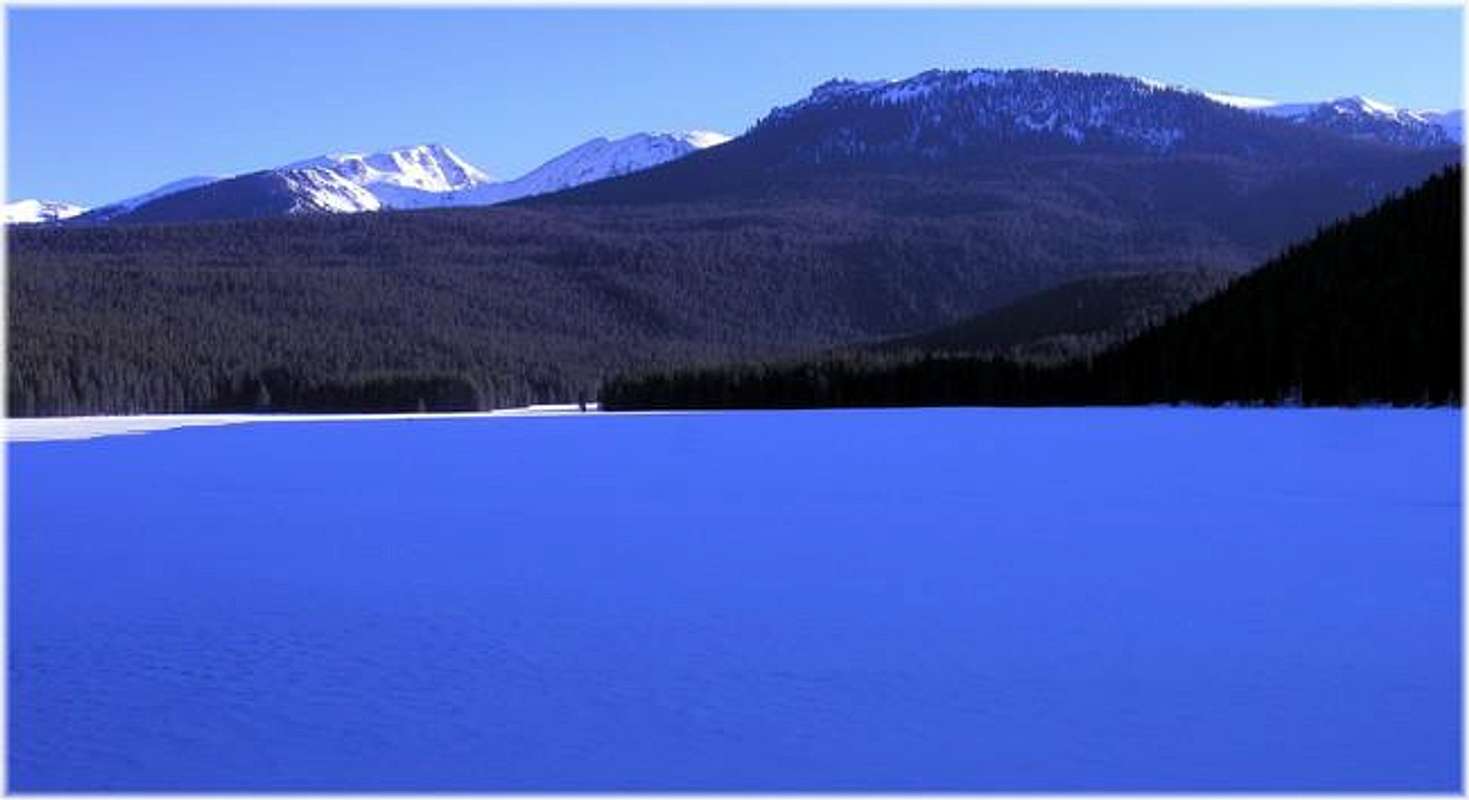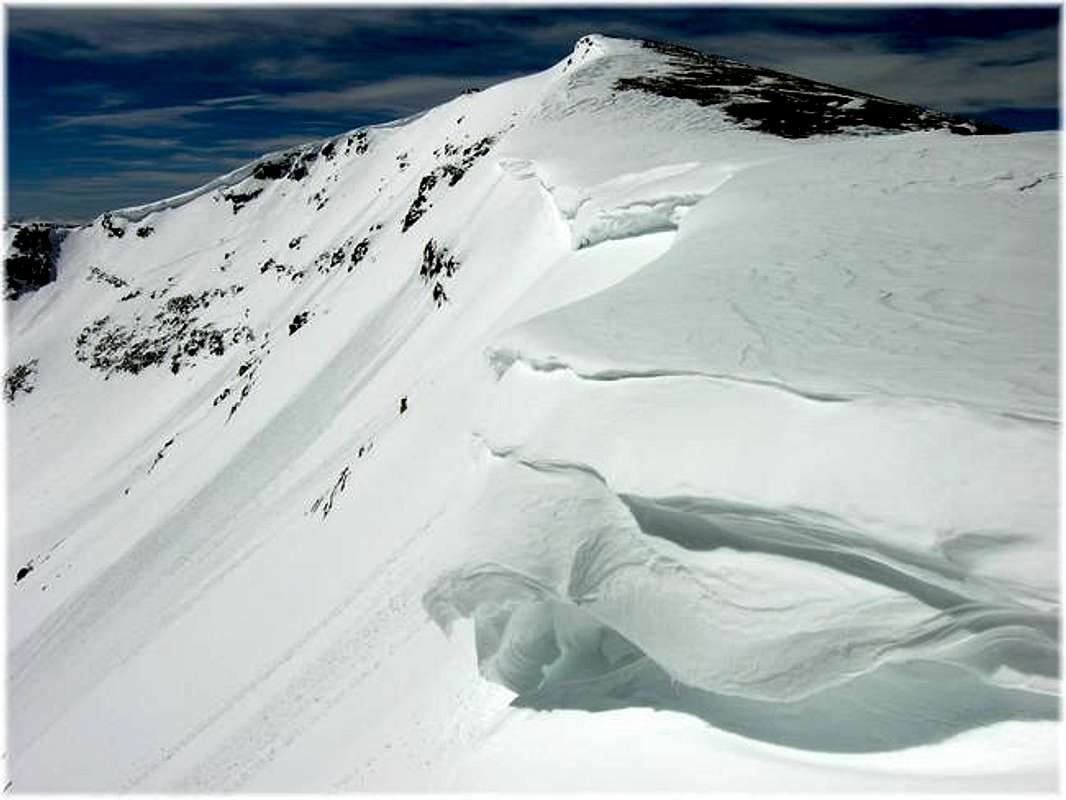|
|
Mountain/Rock |
|---|---|
|
|
40.34350°N / 105.776°W |
|
|
12216 ft / 3723 m |
|
|
Rocky Mountain National Park

Logistically, Rocky Mountain National Park can be split in half via the Continental Divide. There is the west side of the Divide and there is the east side of the Divide. When the good people of Denver, Colorado talk about Rocky Mountain National Park, it’s usually talk pertaining to something located the east side of the Divide. Because of Denver’s proximity to the eastern slope, this makes perfect sense. Plus, it’s no secret that most of the Park’s best and most dramatic scenery graces this side of the Divide. Huge, epic places reside here, places like, Glacier Gorge, Lock Vale Gorge, the Bear Lake area, and the Hayden Gorge area.
When the good people of Grand Lake, Colorado speak of Rocky Mountain National Park, its usually a conversation pertaining to unfrequented and lonely terrain located on the west side of the Divide. Places like Paradise Park, the East Inlet, the North Inlet, the Tonahutu Drainage and, the Onahu Drainage all reside here. Never heard of those places? No problem. But let’s not forget about that “other” side of the Divide.
Let me be the one to introduce you. For potential climbers and hikers, the reality is this; expect long tree-laden approaches that require multi-day efforts to get to the goods. Remote places like Lake Nanita and Lake Verna require upwards of 20 miles of round trip. Add a summit climb of the nearby peak, and you’re looking at a solid 24 miles round trip. Finally, the mountainous terrain surrounding the North and East Inlet only tops out at a paltry 12,500-ft, potentially leaving you feeling cheated in the elevation category. So what’s the point in climbing tiny mountains with long approaches? Hmm..I have no idea.
Nakai Peak

Nakai Peak resides about 2.5 miles west of the Continental Divide and certainly qualifies as one of those tiny mountains with a long approach. Nakai Peak doesn’t really fit the character of most of the named peaks in its proximity. Nakai is its own mountain, not just a named summit along the Continental Divide. The mountain is 95% encircled by lush, pristine drainages. Nakai’s north ridge sports a legitimate 700-ft drop keeping it away and remote, from the mass of its neighboring divide.
Two of the most remote drainages in Rocky Mountain National Park, the Onahu Creek Drainage and the Tonahutu Creek Drainage are separated by Nakai’s 12,216-ft summit. Both drainages are wildlife focus areas, and both support major ecosystems that warrant scientific research. Perfectly tucked away 1000-ft below and west of Nakai’s summit lies the pristine and naturally protected Haynach Lakes Basin. For wildlife, the lake-riddled basin offers some of the most consistent viewing in the park.

Mountain Conditions
Click image to enlarge
Click here to view a 7-day forecast for TraiL Ridge Road
Getting There
From Denver go west on I-70 to the Winter Park turn-off. Drive north over Berthoud Pass and continue to the ski resort of Winter Park. Continue on Hwy 40 and pass the tiny towns of Frazier, Tabernash and and Granby. After driving through Granby look sharp for Hwy 34 turnoff to Grand Lake on the right. Drive hwy 34 to the tiny town of Grand Lake. At the north end of Shadow Mountain Lake, 34 becomes the Trail Ridge Road. Continue past the Grand Lake entrance to the Park and pay your $15.00 fee. Get there before 7:00am and its free. Pass the Kawuneeche Visitor Center and continue another 2.5 to 3 miles to the Green Mountain Trailhead on the right. There is ample parking.Red Tape
(per Jon Bradford)Rocky Mountain National Park
1000 Highway 36
Estes Park, CO 80517-8397
-Visitor Information
970-586-1206
-Visitor Information Recorded Message
970-586-1333
-Backcountry
970-586-1242
-Campground Reservations
800-365-226

